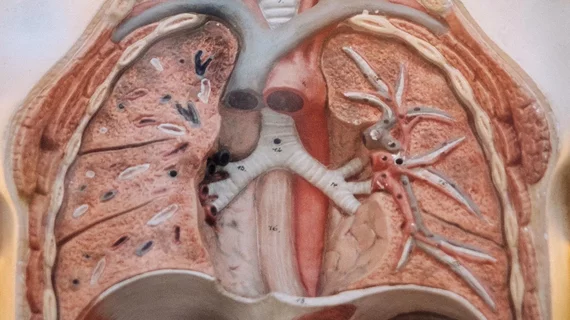Virtual reality shows COVID-19 lungs in vivid detail
Lung specialists in the nation’s capital are using 3D virtual reality to fine-tune treatments of COVID-19 patients and to educate others—clinicians as well as laypeople—on just how destructive the virus can be.
The images are rendered from CT scans and allow viewers to navigate the lungs in 360-degree tours, as demonstrated in a video podcast posted by George Washington University Hospital.
The 13-minute presentation features commentary from Keith Mortman, MD, the hospital’s chief of thoracic surgery.
Mortman describes the case of a patient who was transferred from another hospital when his condition deteriorated to where he needed to be intubated and placed on a mechanical ventilator.
Evaluating the patient’s lungs with the technology, Mortman says, physicians quickly saw the “stark contrast between the virus-infected abnormal lung and the healthier adjacent lung tissue.”
Asked about his first reaction upon examining a COVID patient in this manner, Mortman notes that his department has been using 3D VR for surgical planning and patient education for around four years.
Still, upon encountering the images obtained from the hard-hit COVID patient, he “wanted to get the message out and get this picture out to the public.”
Mortman felt especially motivated to put the images in front of people who’ve been flouting calls from health officials to practice social distancing.
“Hopefully the public will see these images and really start to understand why this [COVID-19] is so serious and how this virus really is not discriminating among various people,” Mortman says in the podcast. “It’s really starting to affect people of all different ages.”
Around 80% of patients testing positive for COVID-19 exhibit minor or even no symptoms, Mortman adds. “However, for the 20% or so of patients who experience shortness of breath or more severe symptoms, the illness often requires treatment in an ICU with a machine to help them breathe.”
Meanwhile the ultimate severity of a COVID-19 infection remains painfully difficult to predict from one coronavirus-positive patient to the next—although there’s hope that AI may be able to help with that assessment.

